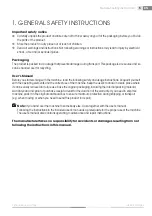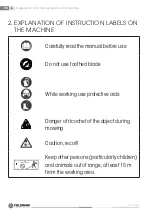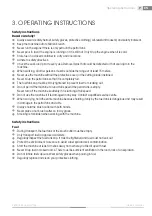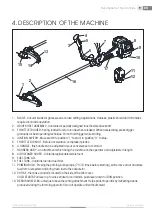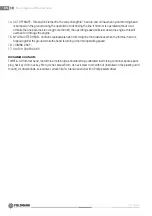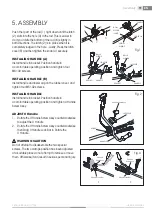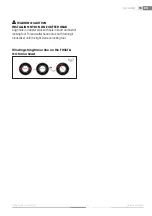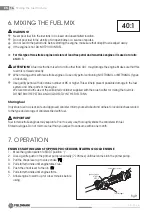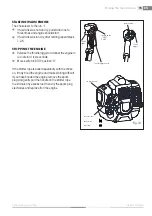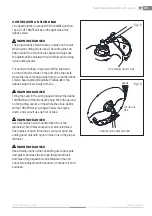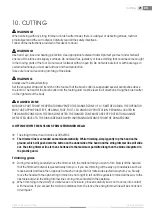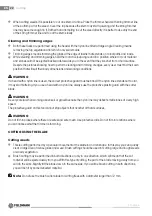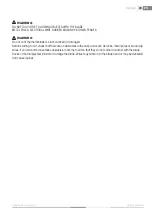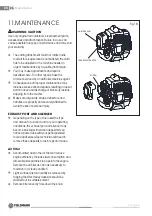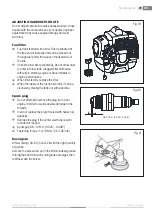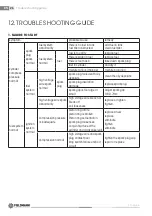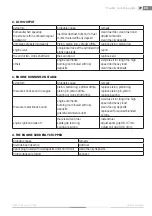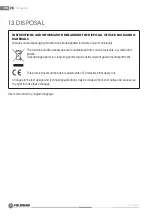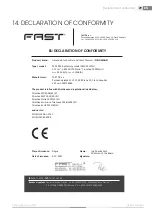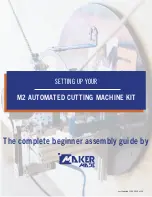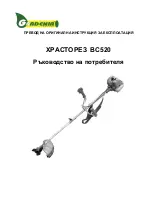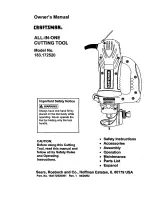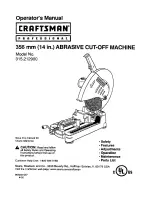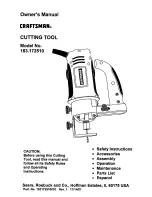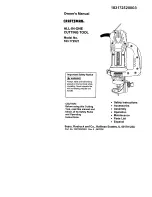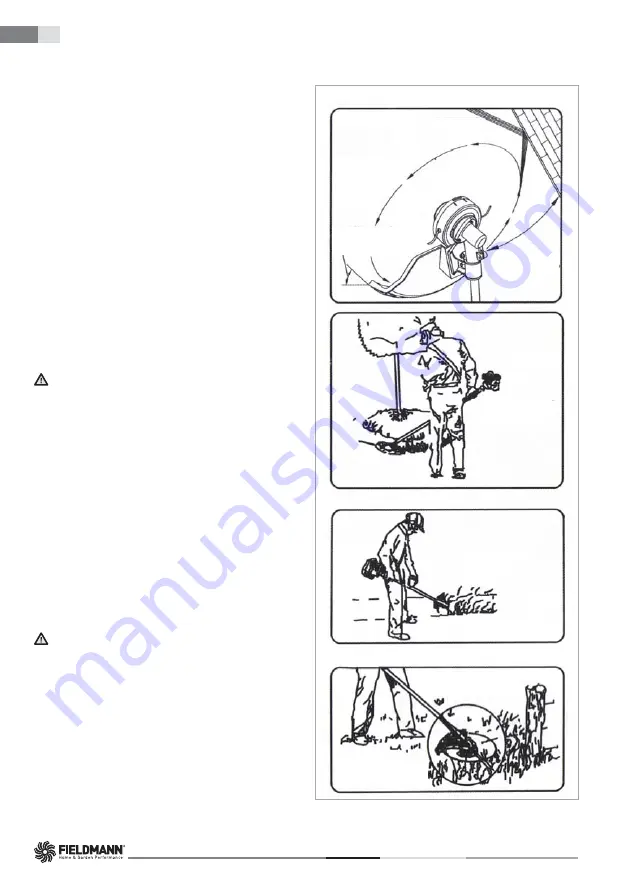
EN
18
FZS 5025-B
Safety working with brush cutter
TRIMMING:
This is feeding the trimmer carefully into the material
you wish to cut. Tilt the head slowly to direct debris
away from you. It’ cutting up to a barrier such as
fence, wall or tree .approach from an angle where
anydebris ricocheting off the barrier will fl y away from
you. Move the line head slowly until the grass is cut
right up the barrier, but do not jam(overfeed )the line
into the barrier. If trimming up to a wire mesh or chain
linked fence be careful to feed only up to wire. If you go
to far the line will snap off around the wire. Trimming
can be done to cut through weed stems one at a time.
Place the trimmer line head near the bottom of the
weed-never high up which could cause the weed to
chatter and catch the line. Rather than cut the weed
right through, just use the very end of the line to wear
through the stem slowly.
WARNING DANGER
Do not use a steel blade for edging or scalping
SCALPING AND EDGING:
Both of these are done with the line head tilted at
a steep angle scalping is removing top growth leaving
the earth bear. Edging is trimming the grass back
where it has spread over a sidewalk or drive way.
During both edgingand scalping, hold the unit a steep
angle and in a position where the debris, and any
dislodging dirt and stones, will not come back towards
you even if it ricochets off the hard surface. Although
the picture shows how to edge and scalp every
oprator must fi nd for himself the angles which suits his
body size and cutting situation.
WARNING DANGER
Do not trim in any area where there are strands of
fencing wire, Wear protective safty protecting, Do not
cut where you cannot see what the cutting device is
cutting.
CUTTING WITH A BLADE
There are many different types of blades, however the
two most commonly used are the following.
Fig. 14
TRIMMING
DEBRIS
ANGLE TO WALL
ANGLE TO
GROUND
KNIFE SIDE
RAISED
SCALPING
EDGING
AVOID WIRE


